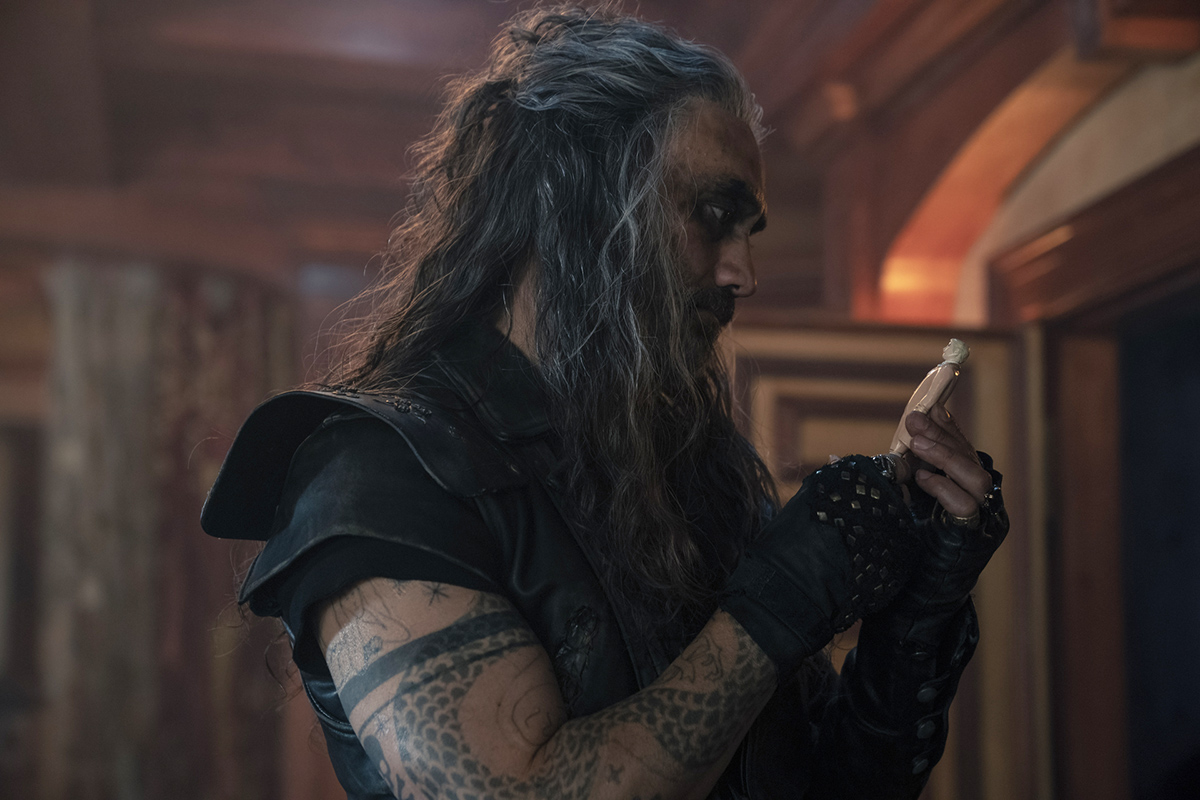‘Our Flag Means Death’ Season 2 Avoids This Common TV Writing Mistake

The first three episodes of Our Flag Means Death season 2 have dropped, and they’re a doozy! The first act of the season is a satisfying payoff after season one’s cliffhanger, in which Stede abandoned Ed and Ed reverted to his murderous Blackbeard persona. Even better, the beginning of season 2 avoided an all-too-common problem in television writing.
Spoilers for Our Flag Means Death season 2, episodes 1-3 and Loki season 2, episode 1 ahead!
To recap: in the first three episodes, the crew of the Revenge is left in disarray after the events of season 1. Stede and his remaining crew eke out an existence in the Republic of Pirates before they’re recruited by the fearsome Zheng Yi Sao (Ruibo Qian). Ed takes out his misery on Izzy and the rest of his crew until they finally snap and leave him for dead. Stede, finding Ed’s body, tearfully apologizes for leaving him.
But wait! Ed is actually just comatose! Trapped between life and death, he hears Stede’s voice and has a vision of Stede swimming toward him in the form of a merman. Stede frantically begs Ed to wake up, and Ed finally opens his eyes, gripping Stede’s hand.
It’s a deeply poignant scene, and it’s made all the better by the fact that it has three whole episodes leading up to it. Not enough TV series take that kind of risk.
Too many series immediately undo their cliffhangers

Another show’s second season premiered yesterday: Loki, which finally returned after over two years. Like Our Flag Means Death, Loki season 1 ended on a devastating cliffhanger. After Sylvie kicks Loki through a time door, he finds himself stranded in an alternate Time Variance Authority. He finds Mobius, but to his horror, he quickly discovers that this Mobius has no idea who Loki is.
The Loki season 2 premiere starts with a heart-pounding continuation of that scene. Loki is running from the new Mobius, who seems to think Loki is a variant. (He’s technically right, but you know what I mean.) Just a few minutes later, though, Loki realizes that he’s been transported to the past, and he time slips back to the present. He’s quickly reunited with the proper Mobius, and the two of them set out to find a cure for Loki’s time slipping.
Don’t get me wrong. Overall, it’s a fantastic episode, but like so many other shows, it rushes to undo all the drama that the season 1 cliffhanger set up. Who is this new Mobius? Will Loki ever find his friends again? After finally meeting someone who accepted him and liked him for who he was, how will Loki deal with finding himself all alone again? In season 2, he only has to deal with those questions for a few frantic minutes. It undercuts all the pathos of the cliffhanger.
Of course, Our Flag Means Death does eventually get Stede, Ed, and their crew back together. However, the series takes its time exploring the consequences of season 1, which gives each character a chance to grow and evolve. Who can forget Izzy’s simmering rage, Lucius’ traumatic survival on the open water, or Jim’s slow build toward mutiny against Ed? And how would we have ever gotten Ed’s epiphany about himself without his mini-arc in those first three episodes?
Our Flag Means Death demonstrates a remarkable economy of storytelling. Season 2 finds the time to luxuriate in deep and interesting character studies, even with only eight half-hour episodes to work with. It’s superb writing, and an example of what television can do when it’s not in a hurry to reset everything when a new season begins.
(featured image: Max)
Have a tip we should know? [email protected]
